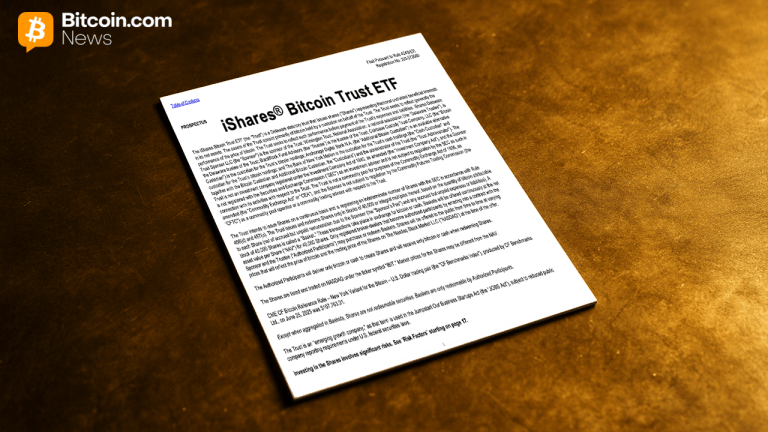Anti-ESG laws’ impacts on munis far-reaching
5 min read
In a rebuke to company policies deemed pro-environmental, social and governance or “woke,” several states have introduced or passed so-called “anti-boycott” laws.
These laws are intended to ban companies, such as commercial banks and investment banks, from doing business in the state if they are perceived as boycotting or otherwise discriminating against: (i) certain industries, such as fossil fuels, firearms, timber, mining, or agriculture, or (ii) other companies that do not support their particular ESG, DEI (diversity, equity and inclusion) or other social, political, or ideological interests.
As a practical matter, anti-boycott laws may reduce competition among underwriters, resulting in increased borrowing costs. Ultimately, the staying power of these laws will depend on a number of factors, including the willingness of states to accept increased borrowing costs or whether to utilize the laws’ existing exceptions to obtain a more economically advantageous deal.
Such laws generally target contracts with state and local governments for goods and services valued at $100,000 or more. To ensure compliance, companies are typically required to certify that they do not and will not boycott such companies.
Many of these laws include exceptions, however, where the requirements: (i) are inconsistent with legal duties related to the issuance or incurrence of debt obligations or the management of the funds or (ii) interfere with the ability to obtain particular goods or services in an economically practicable manner.
Florida’s new anti-boycott law, “An Act Relating to Government and Corporate Activism” (HB-3), goes a step further, effectively banning all state and local issuers in Florida from issuing ESG bonds. Under the law, ESG is defined simply as “environmental, social, and governance” and “ESG Bonds” is defined broadly as “any bonds that have been designated or labeled as bonds that will be used to finance a project with an ESG purpose.”
The definition of issuer is equally broad, including all state and local bond issuers, including the State’s Division of Bond Finance, municipalities and quasi-public corporations, from issuing ESG bonds. Significantly, the Florida Higher Education Facilities Financing Authority (FHEFFA), the issuer of tax-exempt bonds benefitting private colleges and universities in the state, is identified as an issuer in this definition. Effectuating HB-3, as further discussed below, will therefore determine the extent to which private colleges and universities may obtain tax-exempt financing through FHEFFA for ESG-related projects.
Arguably, HB-3 is intended to ban bonds branded in some manner as ESG. Some of the examples of bonds designated or labeled as having an ESG purpose that are included within the definition of ESG bonds are green bonds, Certified Climate Bonds and GreenStar designated bonds. Thus, an issuance of bonds named (i.e., “designated or labeled,” two concepts that are often conflated) “Green Bonds,” “Sustainability Bonds,” or “Social Bonds,” or with similar identifiers, would be banned by HB-3, as such naming choice tags the bond issue as financing a project with an ESG purpose.
If this is the end of the story, then the impact of HB-3’s ban on the issuance of ESG bonds is a fairly simple determination.
The situation become less clear, however, when considering bonds issued for the purpose of financing a project with an arguably ESG purpose, where the name of the bond issue lacks a specific ESG identifier.
Practically speaking, the proceeds of most municipal bonds have some ESG purpose, regardless of the bond issue’s name. Additionally, the official statement and the investor roadshow, which are used in marketing the bonds to investors, typically include a description of the project to be financed with the bonds proceeds.
As such, the wording of HB-3, particularly the definition of ESG bonds, raises a potential validity question due to the following additional examples included in the definition of ESG bonds of bonds designated or labeled as having an ESG purpose: (i) environmental bonds marketed as promoting a generalized or global environmental objective; (ii) social bonds marketed as promoting a social objective; and (iii) sustainability bonds marketed as promoting an environmental and social objective.
Arguably, any bond-financed project marketed through the official statement or investor roadshow as beneficial to the Florida environment, state or local government, or society at large, could fit within these categories, including, wind turbines, solar panels, hurricane preparedness equipment, affordable housing, public schools, libraries, elderly or youth centers, public safety facilities, or a city or town hall.
Complicating matters are bond-financed projects that not only support a particular Florida environmental objective, but also positively impact the environment generally or globally. Since the language of HB-3 alone does not clarify the matter, the extent to which such bond-financed projects would be banned by HB-3 ultimately depends on Florida’s interpretation of ESG bonds specifically and enforcement of HB-3 generally.
In any event, it is unlikely that HB-3 would affect the inclusion of general climate-related disclosure in an official statement for Florida bonds. Florida issuers should proceed with caution, however, in their approach to disclosure in a post-HB-3 world. To avoid potential liability under Section 17(a) of the Securities Act or Rule 10b-5 under the Securities Exchange Act, Florida issuers must avoid making any untrue statement of a material fact, or omitting any such material fact, including those related to environmental, social or governance matters, in their official statements.
Such legal considerations aside, if less information is available to investors to evaluate an issuer’s credit quality, the result may be higher interest rates or the inclusion of more onerous covenants to mitigate any perceived (albeit potentially nonexistent) risks.
HB-3 also bans Florida issuers from entering into contracts with rating agencies whose ESG scores will have a direct, negative impact on the issuer’s bond ratings. Ultimately, it may prove impracticable for a rating agency to either: (i) extract environmental, social and governance considerations from the total mix of information available to a rating agency in its general credit review of an issuer, particularly compared to other states, or (ii) declare, at the time it enters into a contract with a Florida issuer, but prior to commencing and completing its credit review, that such ESG considerations, isolated from further relevant context, would not directly affect the issuer’s bond rating in a negative way.
Significantly, unlike other so-called anti-boycott laws, HB-3 permits financial institutions (including federal or state banks) to circumvent its anti-boycott provisions in connection with the purchase or underwriting of bonds (other than ESG Bonds) issued by governmental entities in the State.
Therefore, commercial banks and investment banks may participate in Florida bond transactions notwithstanding any perceived boycott of particular industries. This exemption may reduce the risk of increased borrowing costs resulting from less competition among underwriters. However, the benefit may be offset by a potentially smaller investor pool, as ESG funds and other impact investors look to other states for ESG-related investment opportunities.
HB-3’s ban on issuing ESG Bonds could be narrowly tailored to minimize disruption or broadly interpreted for a far-reaching impact, depending particularly on the meaning of ESG bonds. The latter scenario may result in a number of unintended consequences, including validation questions, ratings disruptions and disclosure issues. HB-3 could also have a precedent-setting effect beyond Florida.
It will be interesting to observe Florida’s approach to effectuating, interpreting and enforcing HB-3, and the degree to which other states take notice.
Neal Pandozzi is a partner with the law firm Bowditch & Dewey, LLP in Boston, Massachusetts. He has over two decades of public finance experience. He is licensed to practice law in Massachusetts and Rhode Island.







